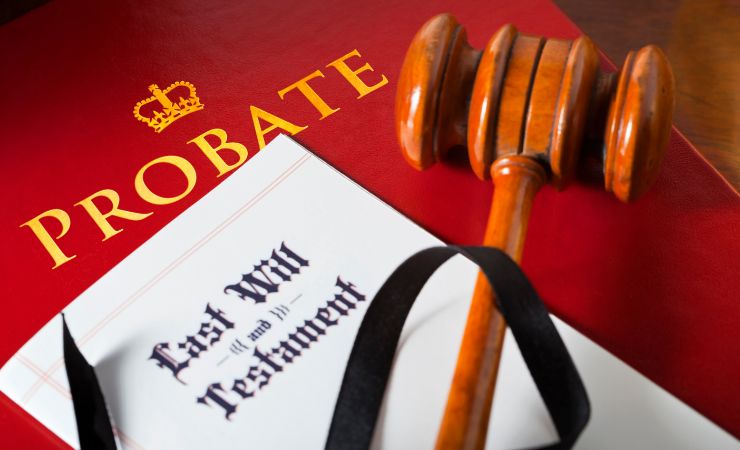Should I Put My House in a Trust in California?

When planning an estate in California, a common question that often arises is whether to put a house in a trust. This decision can have significant implications for an individual’s overall estate planning, such as how protected their assets are and what taxes they may need to pay. By better understanding the different factors to consider when deciding if your trust should include your house, you and your California trust lawyer can make an informed decision that aligns with your overall estate objectives.
Advantages of Placing Your House in a Trust
Placing your house in a trust can have several advantages:
Avoiding Probate
One of the biggest reasons why people include their house in their trust is to avoid probate. This process can be extremely lengthy and drive up unnecessary costs. By having a piece of property in your trust, it will be transferred quickly and directly to a designated beneficiary upon your death.
Privacy
People really like how a trust offers more privacy when compared to a will. This is because trusts are not public records. When placing your house within a trust, it protects the public from seeing specific details about your property that you might want to keep within the family. It also allows your beneficiaries to receive the house in private, without subjecting them to public scrutiny.
Control Over Distribution
A trust also enables you to specify exactly how and when you want the house to be transferred over to your beneficiaries. This can be an attractive factor for including your house within the trust, as it can closely honor your exact wishes. For example, you could request the trust to hold onto the asset until one of your beneficiaries is no longer a minor. That way, they would be more financially responsible and ready to take on a house.
Potential Drawbacks
There can be several drawbacks to putting your home in a trust:
Complexity and Costs
The process of setting up a trust and maintaining it throughout your lifetime can be more complex and costly than some people would like. The financial aspects are an important factor to consider. You will need to fund activities such as setting up the trust, transferring the title of your home to the trust, and any ongoing administrative expenses that might arise throughout the trust’s lifetime.
Managing the Trust
Trustees are responsible for managing the trust while they are alive. This includes record-keeping and handling any disputes that may arise throughout the tenure of the trust. If you have chosen to hire a professional management company to help out, this will also come as an added expense.
Refinancing Challenges
Some lenders will have specific restrictions outlined when someone wants to refinance a property that is already held within a trust. If refinancing the home is a dire need for your own financial health, it may require you to temporarily transfer the property out of the trust to conduct the refinancing. This can drive up extra fees and be a huge inconvenience.
If you feel that refinancing your home for a lower mortgage might be something that you need in the future, this should be considered when deciding whether it might be the right time to include your home in a trust.
FAQs
Q: How Does Putting a House in a Trust Affect My Mortgage in California?
A: Making the decision to place a home within a trust usually doesn’t cause any issues with existing mortgage payments. The only issue that could arise is the need to refinance your home in the future, which might require you to transfer your property out of the trust and refinance it before reentering it back into the trust. However, you never want to assume that your mortgage will be left alone.
Ask your lender to ensure that the trust’s terms allow for this type of transfer without impacting your mortgage. Reviewing your mortgage agreement with a trust attorney can also help prevent any surprise expenses or impacts on your mortgage.
Q: Can I Sell My House If It’s in a Trust?
A: Yes, you still have the ability to sell a home that is already in a trust. As the originator of the trust, you still have the authority to make a decision like this. The process would begin by engaging your trustee to help handle the sale. All proceeds that are generated from the home would then remain within the trust until it’s time for it to be transferred to the beneficiaries. It’s vital to make sure that the home sale is aligned with the trust’s objectives and that any profit made from the home is accounted for.
Q: Does Putting My House in a Trust Provide Asset Protection From Creditors?
A: Using a revocable trust generally does not provide any protection from creditors during your lifetime. If there is an outstanding debt owed, they could tap into the trust to satisfy your debts if they have failed to collect it directly from you after multiple attempts. However, an irrevocable trust may be able to better protect the home.
The consideration for putting your home in an irrevocable trust is that you lose control over the asset, and you cannot alter how the home will be transferred once the trust is formally established.
Q: Is a Trust Safer Than a Bank?
A: When comparing the safety of a trust to that of a bank, it depends on what objectives you have and the type of protection you are looking for. Banks are primarily financial institutions that are designed to offer services like holding deposits and offering loans when needed. They are protected by government insurance programs that safeguard a depositor’s funds up to a certain limit.
Conversely, a trust offers more tailored control over how assets are distributed, which gives the homeowner the ability to specify their exact wishes. The choice to use a trust or a bank should be carefully weighed with a trust attorney. They can ensure that you get the level of protection you are looking for.
Contact Sweeney Probate Law Today
If you are considering putting your home in trust, contact our firm today. We are estate planning professionals who can detail what you should consider when making this important decision. Our team at Sweeney Probate Law is honored to guide you through this process and help you be more comfortable with the future state of your home.







